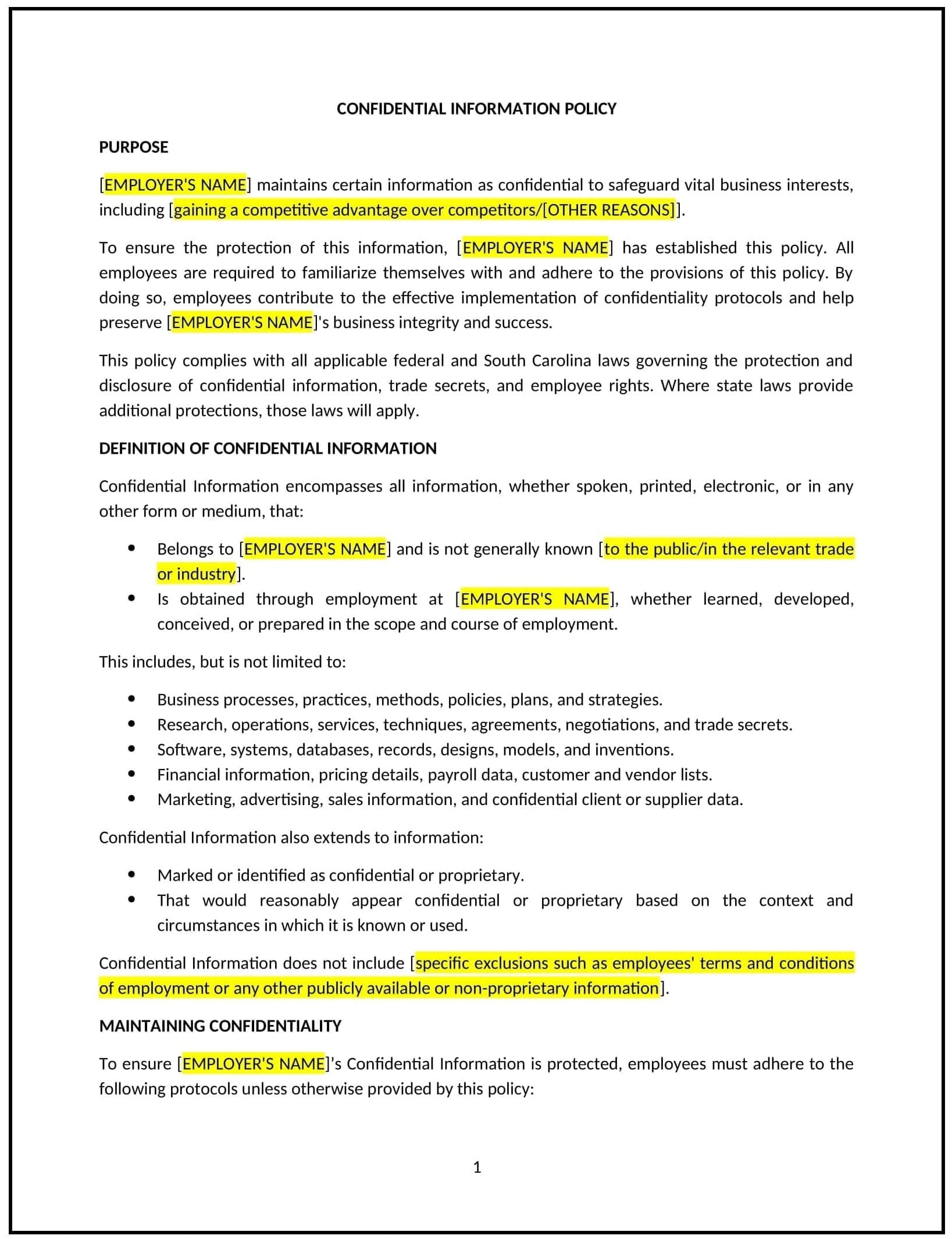Confidential information policy (South Carolina): Free template
Got contracts to review? While you're here for policies, let Cobrief make contract review effortless—start your free review now.

Customize this template for free
Confidential information policy (South Carolina)
This confidential information policy is designed to help South Carolina businesses protect sensitive data, such as customer information, trade secrets, and employee records. It outlines guidelines for handling, storing, and sharing confidential information to prevent unauthorized access or disclosure.
By adopting this policy, businesses can safeguard critical data, reduce the risk of breaches, and align with general best practices for information security.
How to use this confidential information policy (South Carolina)
- Define confidential information: Specify what constitutes confidential information, such as customer data, financial records, or intellectual property.
- Establish handling procedures: Provide guidelines for accessing, storing, and sharing confidential information securely.
- Implement security measures: Require the use of encryption, password protection, and secure storage systems.
- Train employees: Educate staff on their responsibilities for protecting confidential information.
- Monitor compliance: Regularly review data handling practices to ensure adherence to the policy.
- Review and update: Assess the policy annually to ensure it aligns with evolving business needs and security standards.
Benefits of using this confidential information policy (South Carolina)
This policy offers several advantages for South Carolina businesses:
- Protects sensitive data: Reduces the risk of unauthorized access or disclosure of confidential information.
- Mitigates legal risks: Helps businesses avoid penalties or lawsuits related to data breaches.
- Builds customer trust: Demonstrates a commitment to safeguarding customer information.
- Supports compliance: Aligns with general best practices for data security and privacy.
- Enhances reputation: Shows stakeholders that the business takes information security seriously.
Tips for using this confidential information policy (South Carolina)
- Communicate the policy: Share the policy with employees and include it in the employee handbook.
- Provide training: Educate staff on their responsibilities for protecting confidential information.
- Monitor adherence: Regularly review data handling practices to ensure compliance with the policy.
- Address issues promptly: Take corrective action if confidential information is mishandled or disclosed improperly.
- Update regularly: Assess the policy annually to ensure it aligns with evolving business needs and security standards.